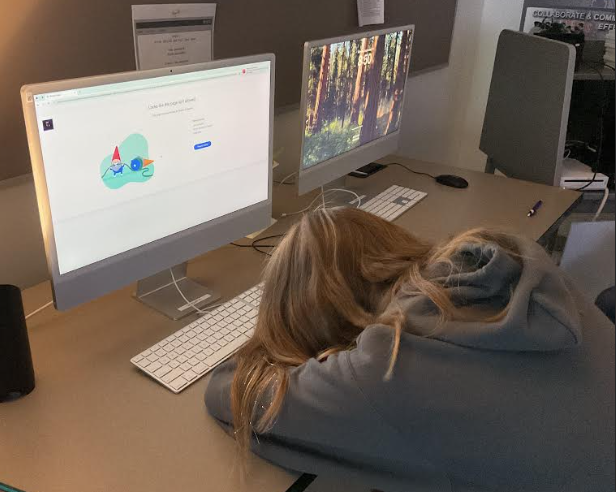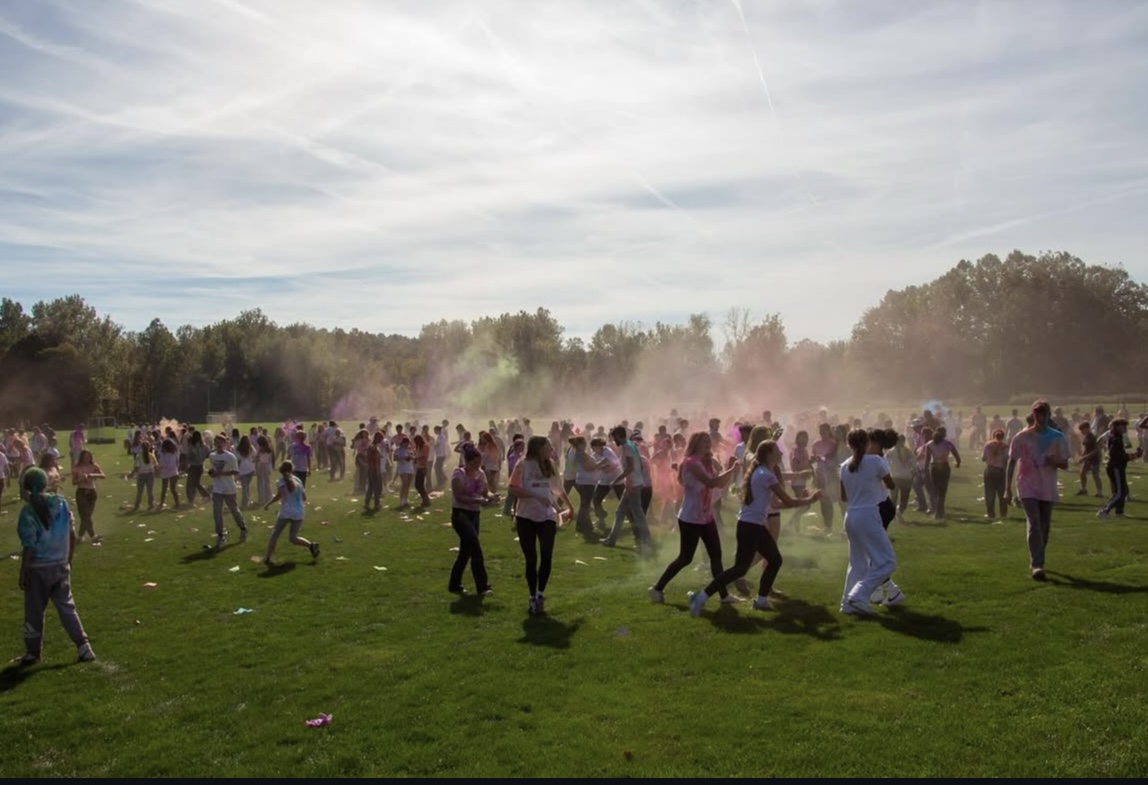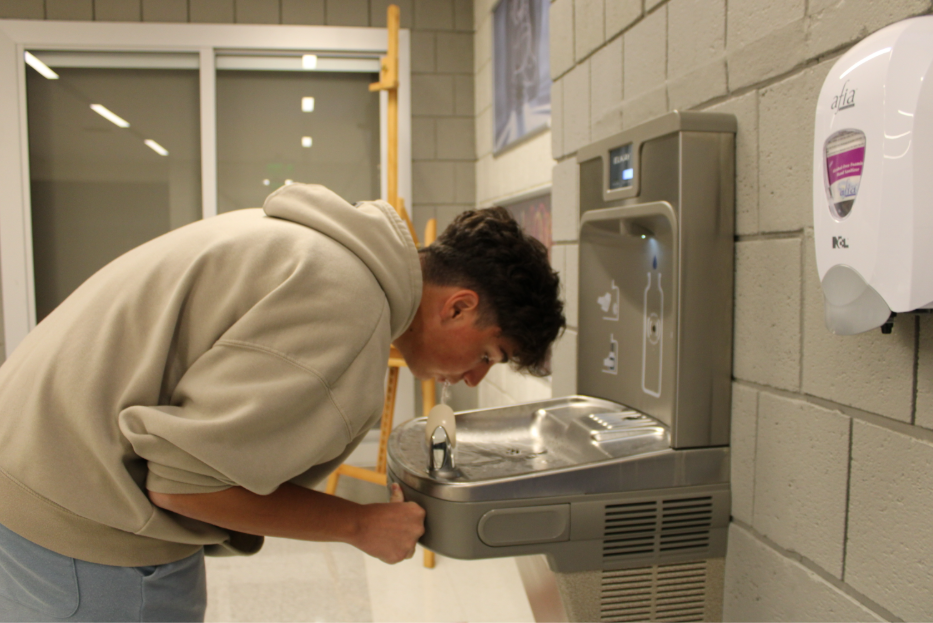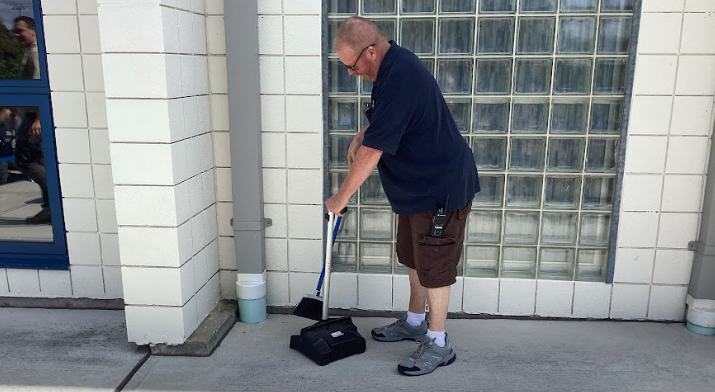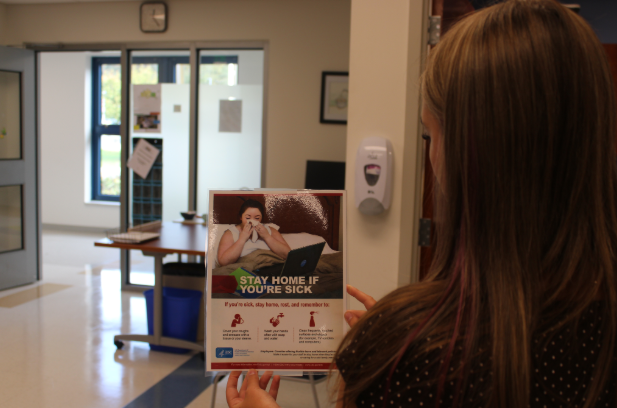WOODBURY – It’s safe to say that being an upperclassman in high school is stressful in itself but the strain on juniors is a special case. With junior year, expectations are high but confidence is low; the SAT, College possibilities, AP testing, and even coming home to do homework after practice can stress us out.
May is typically one of the most stressful times for most NHS students; the combination of high-stakes AP exams, NGSS testing, quarter four grades, and quickly encroaching final exams make this an especially difficult stretch for NHS students. Add on top of that NHS student athletes juggle the stretch run of the athletic season with many league invitationals, meets, and practices taking place all at the same time.
“Having to study for the hardest test of the year is already stressful,” said Jake Cenatiempo, an NHS junior track and field athlete. “Combining that with a three hour practice and spending time with family is almost impossible. Although having a strong workload is good, it’s important to spend time with yourself and reduce as much stress as possible”.
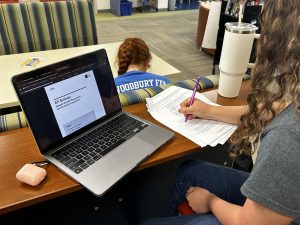
For NHS faculty, easing some of this stress is critical since some students haven’t encountered such levels of stress simultaneously.
“”As a teacher, I observe how junior year classes affect students’ morals and moods,” said Marisa Holtman, a longtime member of NHS’ English Department. “Nevertheless, there are strategies to support students during this important academic year. Stress can be reduced by using tools like calendars, schedules, alarms, and even something as simple as sleeping it off. Time management can be done in a variety of ways, and it is crucial for students to do so in order to have a successful junior year.”
Among NHS juniors the realization that junior year is academically vital to college transcripts compounds the already mounting stressors.
“Having to plan, work, and study for the hardest test of your high school career is already stressful enough,” said Ethan Wild, an NHS junior and student athlete. “Combining that with three hour practices and trying your best to perform at meets/invitationals is almost impossible. Although having a strong workload is good, it’s important to spend time on yourself and create a healthy work environment for yourself.”
With AP exams set to begin the first week of May, the year’s most high-stakes testing window has already begun. Navigating multiple weeks of these tests can make for a storm of stress for students.
“Because of the wide range of material covered in the test, AP classes are the most challenging,” said Mia Salisbury, a NHS student. “SATS and finals coincide with AP exams, making the final two or three months of school the most stressful and intense. Additionally, because teachers frequently wait to conduct a review until just a few weeks prior to the test, I must dedicate many hours outside of class to studying for my APs.”
Regardless of how teams finish this spring, NHS faculty understand that these experiences are what help to shape the most formative experiences for students.
“In the short term Having a lot of competing obligations at once is a good adult life practice,” said Kelly Nichols, a teacher at NHS. “Students would find it extremely difficult to complete that for four years, but perhaps it would be beneficial for adults to do so for a year when many of those factors conflict with each other.”






